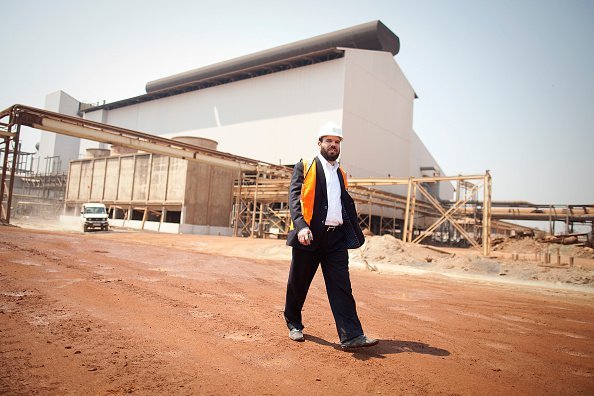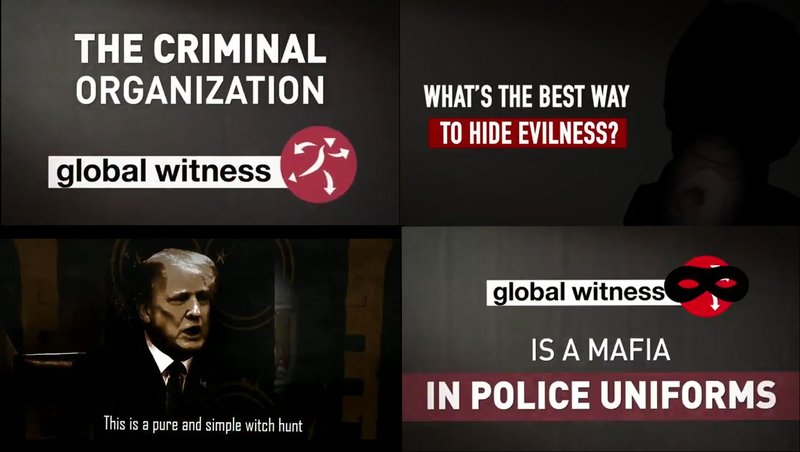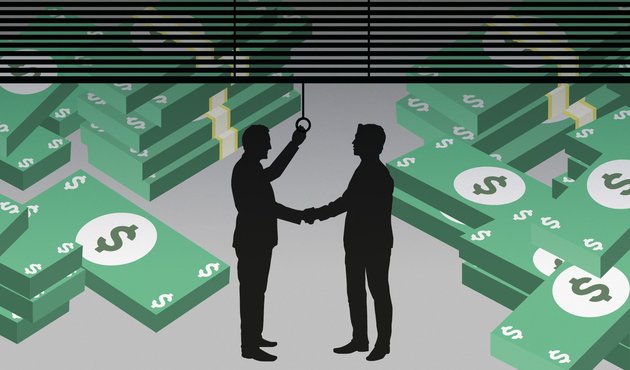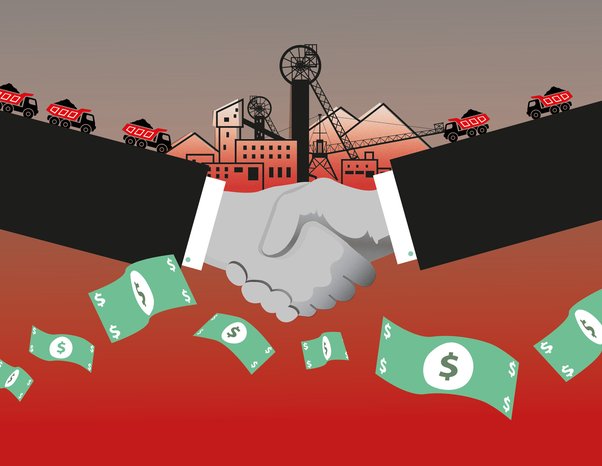Last week we published an investigation reporting that the controversial mining magnate, Dan Gertler has seemingly used a suspected international money laundering network stretching from Democratic Republic of Congo (DRC) to Europe and Israel in a bid to evade the consequences of the US sanctions he has been subject to since 2017
This international network appears to have helped him funnel millions of dollars abroad and retain access to DRC’s mining sector, using Afriland First Bank in DRC, where huge deposits were made by a close friend of Gertler.
Gertler and Afriland First Bank deny all this, suggesting evidence relied on has been forged.
Global Witness has been looking into the activity of Gertler and his continued influence in the mining sector in DRC for almost a decade.
This work is not easy – it’s painstaking and complicated, requiring detailed analysis of financial records by us and our partners.
We also know that whatever information we make public is likely to be seized upon and attempts will be made to discredit it by those who have little interest in seeing fairer and more transparent oversight of the mining industry in DRC.
There are too many who benefit from the deals Gertler has brokered between the Congolese state and some of the world’s largest multinational mining companies.
We were unsurprised, therefore, that just before our report was published, we started to notice a steady stream of social media posts making spurious allegations against Global Witness and its staff connected with our report and seeking to discredit us.
Also before publication, a vexatious criminal complaint was filed against Global Witness and our partners, the Platform for the Protection of Whistleblowers in Africa (PPLAAF), by Afriland First Bank.
Our joint response to this can be found here.
All of this appears to be aimed at diverting attention away from or discrediting our findings.
To understand what is going on here, we wanted to take you behind the scenes, to look at how this report was put together and how tactics like smear campaigns and ill-founded legal complaints can be used by those invested in the status quo to intimidate and silence those who speak out.
1. Our investigation
At Global Witness, our experience and technical knowledge are what helps us stand apart. We will only be successful in pursuing our campaigns around the world if we can show our work is trustworthy, reliable, fair and accurate.
We follow the facts – and report what we find, without fear or favour.
Alongside PPLAAF, we worked on this investigation for over a year, looking into thousands of pages of corporate records and bank records provided by whistleblowers at great personal risk. We also collected statements and obtained documents from a range of sources, which corroborated our findings.
Global Witness is part of an international coalition – le Congo n’est pas à vendre – comprised of local and international organisations fighting corruption in DRC. We consulted and liaised with civil society partners on the ground, as well as international allies, before we came to the key recommendations we put forward.

This investigation also involved separate reporting by Bloomberg, Le Monde and Haaretz, who did their own cross-referencing and fact checking about Dan Gertler and Afriland First Bank. All of them have faced their own legal wrangles because of their coverage.
For 25 years, we have published investigations whose impact has rippled across the world. In doing this, we adhere to the highest journalistic standards.
We ensure all our stories are properly fact-checked and our legal team also goes through our content with a fine-tooth comb.
We stand by the findings we published last week and urge the Congolese, US and EU authorities to investigate our findings and to take forward our recommendations.
2. Attempts to stop the report being published
As is normal in an investigation like this, Global Witness wrote to Dan Gertler, to give him an opportunity to comment on statements and allegations we put to him before we published.
His UK-based law firm, Carter-Ruck, sent us a series of letters, which included accusations against both Global Witness and PPLAAF of using criminal methods and breaching ethical standards.
One letter demanding deletion of any bank records we held and threatened to report us to the police.
On even a cursory review it was clear that their allegations were utterly groundless; the claims being presented did not stand up to any scrutiny. They seemed to be trying to hold up publication, or even scare us off altogether.
Separately, and aside from the criminal complaint and media onslaught, PPLAAF and its founder have been subjected to other direct threats openly intended to inhibit publication.
As PPLAAF’s founder William Bourdon told Mediapart in an interview on 4 July, “I was contacted by lawyers […] who told me that they would attack us and do everything possible, including a media campaign, if the report was published.”
In particular, he said the lawyers told him “We have a recording that is likely to compromise you.” (Translated from French.)
Wherever the threats come from these are fairly crude attempts to silence us and to stop our investigation reaching the public. We are an organisation with experience of taking on powerful forces.
Threats alone won’t make us retreat from reporting what we find, and we will continue to work alongside our partners to deliver a better deal for the Congolese people.
3. Intimidation after publication

A few hours before our report was made public, we started to see a steady stream of accusations against Global Witness and PPLAAF appear on social media.
Well-crafted videos claimed we had got our information through underhand methods. False allegations were made against members of staff including those who had left the organisation many years ago. We were accused of manipulating Congolese civil society organisations we are proud to stand alongside as allies.
This continued into the weekend, with some of my colleagues who had tweeted the report being contacted, and early this week a new video appeared, scattered with fairly well-known and deeply unpleasant global conspiracy theories.
Some of the profiles sharing this content appeared to have been set up very recently, raising questions about how coordinated and well-funded this smear campaign has been.
On the day before publication, Afriland First Bank deposited a criminal complaint in Paris against PPLAAF and GW – the substance of the complaint had been looked into when raised by Gertler's lawyers pre-publication and appears abusive.
Some of the accusations appear to have been fabricated, as we told Gertler’s lawyers two weeks before.
In our view, it is also deeply concerning and unprofessional that Afriland’s complaint sought to expose individuals they "suspect" of being our sources. Just as any other journalist, we will never compromise confidential sources of our information.
We find it outrageous that a complaint could include names that could well put people at risk. We continue to take every precaution we can to protect sources and whistleblowers.
Focus on what matters
In the end this is not about Global Witness or PPLAAF. We will weather this social media storm and our legal team will deal with any unfounded complaint made against us. All this does is distract from the important changes that are needed to bring greater transparency to the DRC mining sector and a fairer deal for the Congolese people.
We’re proud of the work that has gone into this investigation and will continue to work with partners to ensure real action by the Congolese Government, US agencies and the EU follows its publication.


